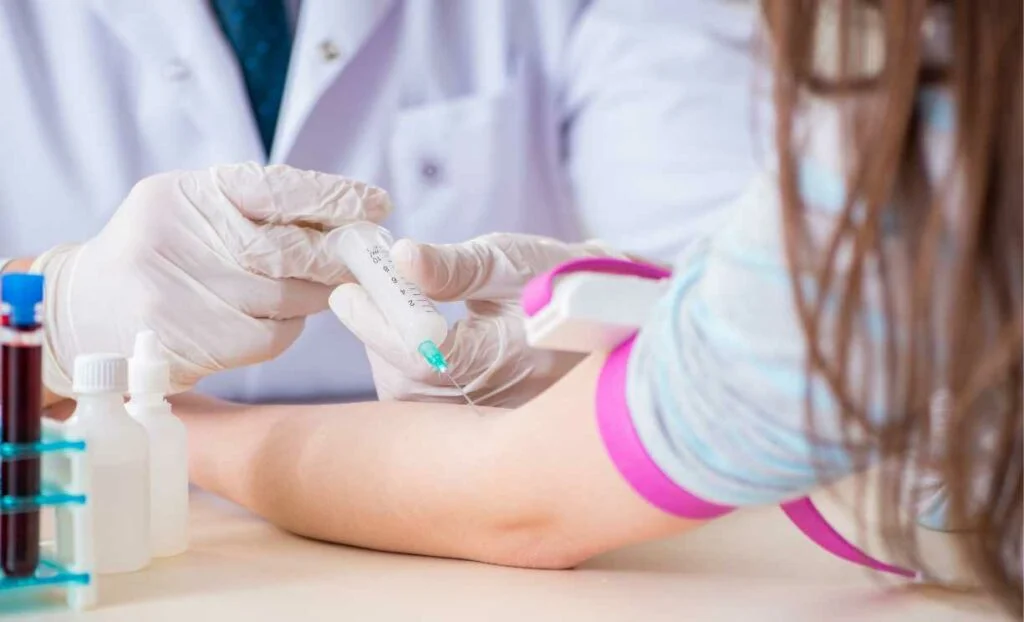Early menopause, occurring before the age of 40, can present unique challenges for women. The sudden hormonal changes can lead to a range of symptoms affecting physical health, emotional well-being, and overall quality of life. In this blog, we’ll explore medicine for early menopause designed to alleviate symptoms and provide support for women.
Contents
Understanding Early Menopause And Is It A Problem?
Early menopause, also known as premature or premature ovarian failure, refers to the onset of menopause before the age of 40. Menopause typically occurs around the age of 51, so experiencing it earlier than expected can be a significant life event. In natural menopause, the ovaries gradually reduce the production of hormones like estrogen and progesterone, leading to the end of the menstrual cycle. However, in early menopause, this process happens earlier than usual, affecting a woman’s reproductive system and hormone levels.
While early menopause is a natural biological variation, it can be considered a problem for several reasons. Firstly, women may face fertility challenges, making it more difficult to conceive. This can be emotionally distressing for those who have plans for starting or expanding their families. Additionally, the hormonal changes associated with early menopause can lead to symptoms that affect overall well-being and quality of life.
Moreover, early menopause may increase the risk of certain health conditions, such as osteoporosis and cardiovascular diseases, due to the decreased levels of estrogen. It’s essential for women experiencing early menopause to take medicine and work closely with healthcare providers to address these potential health risks and manage symptoms effectively.
Causes Of Early Menopause
Early menopause, occurring before the age of 40, is a phenomenon that can have various causes. Understanding these factors is crucial for women facing this unexpected transition. Let’s delve into some common causes of early menopause:
- Genetic Factors: If a woman’s mother or sisters experienced early menopause, it may suggest a genetic predisposition to reaching menopause earlier than average. Specific genetic disorders, such as Turner syndrome or Fragile X syndrome, can impact ovarian function and contribute to early menopause.
- Autoimmune Diseases: Autoimmune diseases involve the immune system mistakenly attacking healthy tissues, including the ovaries. Conditions like rheumatoid arthritis and thyroid disorders may lead to premature ovarian failure.
- Surgical Interventions: Surgical removal of both ovaries (oophorectomy) or the uterus (hysterectomy) disrupts the hormonal balance and can induce early menopause. Even the removal of one ovary can affect hormonal levels.
- Chemotherapy and Radiation Therapy: Cancer treatments, especially certain chemotherapy drugs and pelvic radiation therapy, can damage ovarian tissue. This damage may lead to a decline in ovarian function, causing premature ovarian failure.
- Medical Treatments: Some medications used to treat conditions like endometriosis can affect ovarian function. This impact on hormonal levels may contribute to early menopause.
- Environmental Factors: Exposure to environmental toxins, such as pesticides or industrial chemicals, may interfere with ovarian function. Prolonged exposure can contribute to premature menopause.
- Epilepsy: Some medications used to manage epilepsy may influence hormonal levels. Women with epilepsy may experience an increased risk of early menopause due to the effects of these medications on ovarian function.
- Malfunctioning Ovaries: In some instances, ovaries may not function correctly due to genetic factors or unknown reasons. This malfunction can result in premature ovarian failure.
- Autoimmune Oophoritis: Autoimmune oophoritis involves the immune system attacking the ovaries. This autoimmune response can disrupt normal ovarian function, leading to premature menopause.
Diagnosing Early Menopause
Diagnosing early menopause involves a comprehensive assessment by healthcare professionals to understand a woman’s symptoms, medical history, and hormonal status. While the absence of menstrual periods for 12 consecutive months is a key indicator of menopause, diagnosing it before the age of 40 requires a careful examination of various factors. Here’s an overview of the diagnostic process for early menopause:
- Clinical Evaluation: Healthcare providers begin by conducting a thorough clinical evaluation, discussing the woman’s medical history, symptoms, and any factors that might contribute to early menopause, such as family history, surgeries, or medical treatments.
- Physical Examination: A physical examination helps rule out other potential causes of menstrual irregularities or hormonal changes. It may include a pelvic exam to assess the health of the reproductive organs.
- Blood Tests: Hormone levels play a crucial role in the diagnosis. Blood tests measure levels of hormones like estrogen, follicle-stimulating hormone (FSH), and luteinizing hormone (LH). In early menopause, FSH levels are typically elevated, and estrogen levels are lower than expected for a woman’s age.
- Genetic Testing: In cases where genetic factors are suspected, genetic testing may be recommended to identify conditions like Turner syndrome or Fragile X syndrome that could contribute to premature ovarian failure.
- Bone Density Testing: Given the link between early menopause and decreased estrogen levels, bone density testing may be recommended to assess the risk of osteoporosis, a condition associated with lower estrogen levels.
- Fertility Assessment: If fertility preservation is a concern, healthcare providers may discuss fertility assessments and options with the woman. This can include assessing ovarian reserve and discussing potential fertility preservation methods.
- Consultation with Specialists: Depending on the complexity of the case, consultation with specialists such as endocrinologists or reproductive endocrinologists may be recommended to provide additional expertise in hormonal and reproductive health.
Medicine For Early Menopause
The management of early menopause through medicine involves addressing symptoms and potential health risks associated with the hormonal changes. Medications may be prescribed to alleviate symptoms and support overall well-being. Here are some medications commonly used for early menopause:
- Selective Estrogen Receptor Modulators (SERMs): SERMs are medications that mimic the effects of estrogen in certain tissues of the body. Tamoxifen and raloxifene are examples of SERMs. They are prescribed to manage symptoms like hot flashes and support bone health without the potential risks associated with systemic estrogen. SERMs offer an alternative for women who may not be suitable candidates for traditional hormone therapy.
- Antidepressants (SSRIs/SNRIs): Certain antidepressants, specifically SSRIs and SNRIs, prove beneficial in alleviating mood swings, anxiety, and hot flashes associated with early menopause. Medications like fluoxetine, paroxetine, venlafaxine, and duloxetine are commonly prescribed. Beyond their primary use for mood disorders, these antidepressants can effectively address emotional and vasomotor symptoms during this transitional phase.
- Gabapentin: Originally developed to treat seizures, gabapentin has shown effectiveness in reducing hot flashes and improving sleep quality in menopausal women. This medication provides a non-hormonal option for managing symptoms, offering relief without relying on traditional hormone interventions.
- Vaginal Estrogen: For women experiencing vaginal dryness and discomfort, low-dose vaginal estrogen in the form of creams, rings, or tablets can provide localized relief without the systemic effects of oral estrogen. This targeted approach helps address specific symptoms while minimizing overall estrogen exposure.
- Bisphosphonates: Given the hormonal changes and the associated decline in estrogen levels, bone health becomes a concern in early menopause. Bisphosphonates are medications prescribed to support bone health and reduce the risk of osteoporosis. Regular use helps maintain bone density and prevents fractures, providing essential support for women during this phase.
Managing Early Menopause
Early menopause can present unique challenges, but with medicine, and a holistic and tailored approach, women can effectively manage symptoms and support their overall well-being. Here’s a comprehensive guide to managing early menopause:
- Regular Exercise: Engaging in regular physical activity has multiple benefits. Exercise helps manage weight, supports bone health, and alleviates symptoms such as hot flashes and mood swings. Aim for a mix of cardiovascular exercises, strength training, and flexibility exercises.
- Balanced Nutrition: Adopting a balanced and nutritious diet is essential during early menopause. Incorporate a variety of fruits, vegetables, whole grains, and lean proteins. Pay attention to calcium-rich foods or consider supplements to support bone health.
- Hydration: Staying well-hydrated is crucial, especially during hot flashes and night sweats. Opt for water, herbal teas, and other hydrating beverages while limiting caffeine and alcohol intake, which can exacerbate symptoms.
- Stress Management: Chronic stress can amplify menopausal symptoms. Incorporate stress-reducing practices such as mindfulness, meditation, yoga, or deep-breathing exercises into daily routines. These techniques promote relaxation and emotional well-being.
- Adequate Sleep: Quality sleep is vital for overall health. Create a sleep-friendly environment, establish a regular sleep schedule, and practice good sleep hygiene. Addressing sleep disturbances can positively impact mood and energy levels.
- Limiting Caffeine and Alcohol: Caffeine and alcohol can trigger hot flashes and disrupt sleep. Consider reducing the consumption of these substances, especially in the hours leading up to bedtime.
- Weight Management: Maintaining a healthy weight is beneficial for managing hormonal balance and reducing the severity of certain symptoms. A combination of regular exercise and a well-balanced diet supports weight management during menopause.
- Fertility Preservation Considerations: If fertility preservation is a concern, consult with reproductive specialists early on. Explore options like egg freezing or other assisted reproductive technologies to address fertility-related considerations.
Conclusion
In the journey through early menopause, the significance of finding effective and personalized solutions cannot be overstated. Medicine for early menopause helps alleviate symptoms, support overall well-being, and plays a crucial role in this transformative phase of a woman’s life.
From Hormone Replacement Therapy (HRT) providing a vital boost to diminishing estrogen levels to Selective Estrogen Receptor Modulators (SERMs) offering alternative approaches, the array of medications aims to address the diverse manifestations of early menopause. Antidepressants, gabapentin, and specialized treatments like vaginal estrogen contribute to a tailored and comprehensive management plan.






Very superb info can be found on weblog.Money from blog